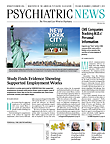Cymbalta Generics Approved for U.S. Market
The Food and Drug Administration (FDA) has approved the first generic versions of Eli Lilly’s antidepressant Cymbalta (duloxetine delayed-release capsules). The approval was granted to six generic drug makers in December 2013.
“Generic drugs offer greater access to health care for many people,” said Kathleen Uhl, M.D., acting director of the Office of Generic Drugs in the FDA’s Center for Drug Evaluation and Research. “Health care professionals and consumers can be assured that these FDA-approved generic drugs have met our rigorous standards.”
Generic versions of duloxetine will be available in the same dosages as Cymbalta and will include a boxed warning regarding suicidal thoughts and behavior during initial treatment in children, adolescents, and young adults aged 18 to 24. Common side effects include dry mouth, drowsiness, decreased appetite, and fatigue.
Cymbalta was Lilly’s leading drug for the first nine months of 2013, accounting for almost a quarter of Lilly’s sales revenue during this period.
ADHD Medication Increases Risk of Priapism
On December 17, 2013, the FDA issued a safety warning concerning methylphenidate products, a category of stimulants used to treat attention-deficit/hyperactivity disorder (ADHD), due to increased risk for priapism, a condition that can lead to permanent damage of penile tissue.
This is the second instance in which the FDA has issued a safety warning for priapism for medications used in ADHD treatment. Atomoxetine was the first to receive such a warning. According to the FDA, priapism seems to be more common in patients taking atomoxetine than in those taking methylphenidate products. Because of limitations of available information on these medications, the agency does not know the rate at which priapism occurs in patients taking either ADHD drug.
The FDA recommends that health care professionals discuss the signs and symptoms of priapism with all male patients—including prepubertal ones—who are prescribed methlyphenidate products. The agency stresses that if such a condition occurs, immediate medical treatment should be sought.
Narcolepsy Drug Helps Reduce Depression
Researchers from England’s University of Cambridge and University of East London conducted a study evaluating the effectiveness of modafinil—a medication approved by the FDA to treat narcolepsy, sleep-wake disorders, and excessive daytime sleepiness associated with sleep apnea—as an add-on treatment for depression.
The meta-analysis involved studies of approximately 900 patients with either major depressive disorder or bipolar depression. The subjects were given first-line antidepressant therapies in addition to either modafinil or placebo.
Analyses showed more improvement in depression severity in those taking modafinil than in those who were not given the drug. In addition, modafinil was associated with a decrease in hospital readmission rates and improvement in fatigue, sleepiness, and alertness—symptoms that are often associated with depression.
“This is good news for individuals struggling to fight depression,” said Cynthia Fu, M.D., Ph.D., a professor at the University of East London. “It is particularly important that people receive effective treatment as the residual symptoms—fatigue and lack of concentration—can persist and have a negative impact on people’s lives.” The authors plan to extend their findings by observing the long-term efficacy and safety of antidepressants and modafinil in treating depression. ■
